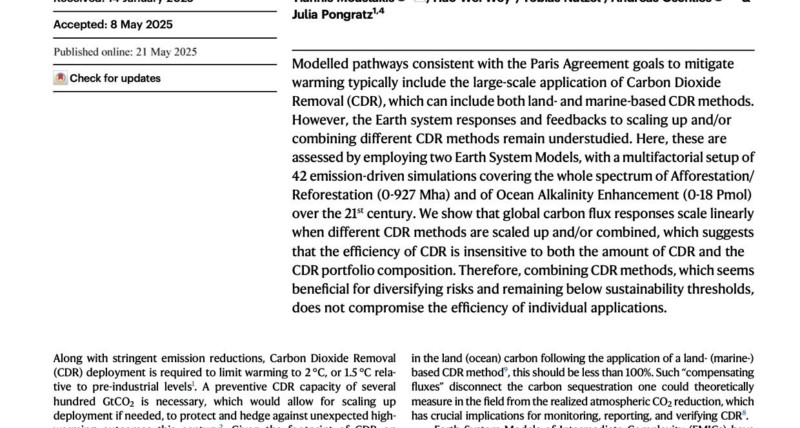Tax haven, destruction of marine life, plundered South… Industrial fishing, heavily subsidized, is a catastrophe. For Claire Nouvian, tireless defender of the oceans, fighting is a “question of social justice”.
Claire Nouvian is spokesperson for the Bloom association, which fights against overfishing and the protection of the oceans. She worked to ban deep-sea trawling in Europe in 2016 and electric fishing in 2019.
Reporterre — The oceans cover more than 70% of the earth’s surface. Are they in danger?
Claire Nouvian — Yes, they are in danger. In fact, we, humanity, are in danger. This 70% represents almost three quarters of the planet’s surface. But this does not include the volume of water that the ocean represents. In fact, 98% of the water on Earth is in the ocean. This quantity of water has a determining role in the functioning of our planet: climate stability, heat redistribution, the right humidity, the right temperature level, and even solar radiation because heat is redistributed thanks to currents. sailors. Today, the ocean absorbs up to a third of our CO2 emissions. In the last fifty years alone, it has absorbed 93% of our excess heat. The ocean has therefore warmed, leading to an increase in surface water, which has major consequences.
What are the consequences of increasing water temperatures?
It generates marine heatwaves, the extent of which still remains elusive. Underwater fires occur which cause mass mortality in the oceans, meaning it is so hot that animals cook on the spot. Like bivalves, oysters or mussels, which constitute complex ecosystems. A few years ago, more than a billion marine animals died along the American and Canadian west coast. Researchers say they are unable to understand and quantify what is happening underwater. Everything is going too fast.
Why, despite current knowledge, does everything continue with such unconsciousness?
I don’t have a magic answer, but I guess we have to draw on the evidence. The obvious fact is that what happens in the ocean cannot be seen. We turn our backs on the sea, as Tabarly [a French sailor-navigator (1931-1998)] said. We don’t realize that underwater trawlers are constantly operating and that their immense fishing nets behave like bulldozers. The passage of trawlers, whose weighted nets are intended to scrape the seabed, represents 150 times in area what is deforested on Earth each year. On a global scale, the area affected by fishing boats is four times that of agriculture. However, fishing represents less than 10% of the animal proteins that make up our diet.
“We are beginning to realize that the ocean is empty”
The ocean is also so vast that it is hard to imagine that humans have succeeded in transforming it. When we first started removing living species from the ocean, the volume was so overwhelming that it seemed impossible to manage. In a way, this idea continues to shape our mentalities. In just a few years, with documentaries, like Seaspiracy [a documentary on the environmental consequences of fishing] and the work of NGOs, we are starting to realize that the ocean is empty.
The NGO Bloom published a report explaining that industrial fishing was poorly performing, both environmentally, socially and economically, and yet it received a lot of public aid. Taxes finance the death of the ocean.
Industrial fishing activities are in fact artificially maintained by public subsidies. This sector is in fact organized by manufacturers for mass distribution manufacturers. They are the ones who benefit from artificially low prices. We pay for fish several times: through taxes and subsidies, then at the stall.
Groups like Intermarché take strong margins. These significant profits sometimes fuel tax evasion…
This subject of tax evasion or optimization and social dumping is central. Industrial groups are reflagging their gigantic fishing vessels: today, half of the European fleet is flagged in Seychelles, which is a tax haven. Our food systems, whether agricultural or fishing, are organized for the benefit of mass distribution. But we pay the direct and indirect price through the destruction of landscapes, health, ecosystems and the health of farmers. These questions are inseparable from a questioning of capitalism.




